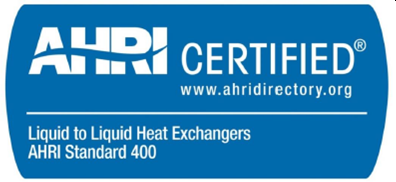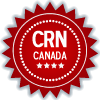Wessels Product Certifications from Around the World

Wessels Company manufactures and ships pressure vessels and HVAC specialty equipment all over the world, which means products must pass rigorous testing to meet a variety of international certifications.
Wessels is primarily known as an ASME shop. ASME is short for The American Society of Mechanical Engineers and is a professional organization that sets technical guidelines for mechanical manufacturers, engineers, designers and equipment operators. The ASME certification signifies stronger fabrication standards and overall operation reliability.
There are various divisions to ASME coding, but Wessels manufactures specifically to section VIII division 1. For a vessel to qualify for certification, the manufacturer must pass an on-site certification process which is monitored and approved by an ASME inspector.
Wessels typically builds to “U” stamp because it’s all-inclusive of everything we can build to Section VIII. The “UM” stamp stands for “miniature vessels,” and is only valid for pressure vessels of a certain size.
Wessels also has the ability to build to a “UM” stamp if this would be required. “UM” is also self-certifying, so there is no involvement from the third party inspection agency for certifying “UM” vessels. In some cases it is preferred to have “UM” models made. However, there’s nothing that you can build in “UM” that you can’t also build with a “U” stamp.
Other international certifications are country-specific, such as the JIS and the CRN in Japan and Canada respectively. JIS is short for Japanese Industrial Standard and it signals to users that the reliability of the product has been met to the satisfaction of the Japanese Industrial Standards Committee.
The CRN stands for Canadian Registration Number and designates the design and use of pressure vessels, piping systems, and system fittings. The CRN certification is required for each product used within a system and ensures the fabrication, inspection, and registration of each product with the National Board. Any product design that is intended for use in Canada is reviewed multiple times and must be approved in all the jurisdictions within Canada where the product may be used.
The DOSH certification, which is an abbreviation for Department of Occupational Safety and Health, is from Malaysia. Wessels products that are covered under the DOSH certification include expansion tanks, heat exchangers, and pressure vessels. Manufacturers who import these items into Malaysia must be certified by a third-party inspection agency.
For vessels used in Singapore, the certification is called MOM or Singapore Ministry of Manpower. Before pressure vessels are to be used in Singapore, the Director of Occupational Safety of their approved representative needs to approve the manufacturers process in fabrication and a report needs to be issued and accepted by an overseas inspection agency. For vessels in India, the IBR or Indian Boiler Regulation certifies fabrication and materials used in pressure vessels.
The Pressure Equipment Directive, or PED, sets the standard for design and fabrication of pressure vessels for countries in the European Union. This certification ensures products conform to Pressure Equipment Regulations within the safety standards set in the EU.

In Australia, the AS1210 certification ensures that products meet the minimum standards for materials, design, manufacture, testing, inspection, certification and documentation requirements set by the Australian Standards for pressure vessels operated within the country. This standard specifies requirements for metallic and non-metallic vessels, or metallic vessels with non-metallic linings. This requirement is certified by inspections during various stages of the life of the vessel and it notes that the quality or other standards are met that may be relevant to the product.

Finally, Wessels Company’s liquid to liquid plate and frame heat exchangers are certified by the AHRI Standard 400. This certification ensures products meet and operate as intended and is attained after the product has been tested in a lab by third party inspection. The 400 standard means WesPlate heat exchangers meet safety, energy efficiency, and toleration level requirements set for the product by individual states and the government of the United States.


